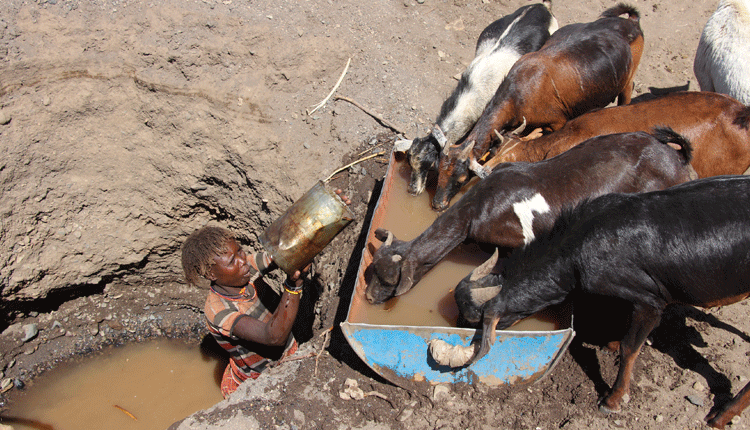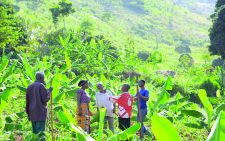For better health, prioritise anti-climate change fight

The climate crisis threatens our planet, society and economy. During this year’s World Health Day (marked yesterday), WHO focuses global attention on urgent actions needed to keep humans and the planet healthy and foster a movement to create societies focused on well-being.
According to WHO more than 13 million deaths around the world each year are due to avoidable environmental causes, including the single biggest health threat facing humanity — the climate crisis.
Throughout the world, climate change is being felt, from low-lying countries to arid and semi-arid areas. The changes in the climate are posing particular risks to the rights to life, food, water and health and, therefore, imposing an increasing burden on governments, especially in countries with limited resources, in their efforts to protect vulnerable populations and realise human rights. Indigenous populations, poor and socially marginalised individuals, women and people with disabilities are often most affected.
Sexual and reproductive health and rights are vital in improving well-being and advancing gender equality. By giving women and girls access to sexual and reproductive health and rights they will have control over their bodies, and, therefore, address unfair power relations in their lives and lead the response to the climate crisis. If we want to achieve climate justice, sexual and reproductive health and rights and gender equality have to be prioritised.
Here in Kenya, despite the decentralisation of many government functions, the counties have done little to integrate climate change into development plans or develop adaptation strategies for vulnerable populations. Climate change is having an uneven impact across the world but what is the role of the counties in addressing the human rights effects of climate change and other environmental threats?
Recently, extreme weather events, land degradation and water scarcity are displacing people and affecting their health. Pollution and plastics are found at the bottom of the oceans, the highest mountains and have made their way into our food chain. Systems that produce highly processed, unhealthy foods and beverages are driving a wave of obesity, cancer, asthma and heart diseases while generating a third of global greenhouse gas emissions.
We know what policy changes are required to address climate change, however, the problem is we’re not enacting them yet. Globally, youth recognise the climate crisis will affect the rest of their lives, therefore, they are taking matters into their own hands, using innovative tactics and literally putting their bodies on the line to say the time for change is now.
Several effects of climate change include severe drought which can affect water supply, agriculture, transportation, energy and public health which, due to reduced flows in rivers and streams, can concentrate pollutants, threatening the quality of water used for drinking and recreation. Further, drought-fuelled wildfires can expose nearby communities to smoke and pollutants, which can exacerbate chronic respiratory illnesses. The effects can inflict extreme costs on people, businesses and governments.
The past two years of Covid, have highlighted the inequities in our world. The pandemic has revealed weaknesses in all areas of society and underlined the urgency of creating sustainable well-being societies committed to achieving equitable health now and for future generations without breaching ecological limits. To reduce this exposure and ensure human rights standards are integrated into adaptation plans, the government should ensure meaningful participation and access to relevant information for affected groups and refrain from investments and implementing actions that could undermine people’s rights.
Owing to the fact that 90 per cent of people breathe unhealthy air resulting from the burning of fossil fuels, the government should ensure the National Adaptation Plan under development is in accordance with Kenya’s obligations under the UN Framework Convention on Climate Change and international human rights law that includes plans on how to protect rights to food, security, water and health.
Similarly, there is a need to promote non-discrimination in all national policies, action plans, implementation strategies and other measures on climate change.
— The writer is a sexual and reproductive health and rights expert and a communications specialist













